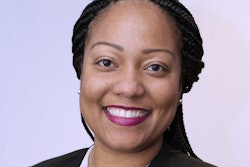Jobs for the Future (JFF), a nonprofit driving workforce and education transformation, in partnership with the University of Phoenix released the report “Professional Social Capital: A Key to Black Economic Advancement.” It contains an action-based framework that addresses systemic barriers in education and workforce development as well as outlining strategies for colleges and employers to support career advancement for Black learners and workers by building professional social capital.
“We saw evidence that relationships were critical to fill in that missing variable to the completion and economic advancement equation,” said Michael Collins, JFF vice president and leader of JFF’s Center for Racial Economic Equity. “We wanted to create a framework and supports for institutions.”
Connections, networks and resources help people understand, access and navigate educational systems and the labor market. Stepping away from the traditional focus on completing an educational program or acquiring a credential, the report examines the importance and impact of professional social capital. It then examines how educational institutions and companies can support Black learners and workers in acquiring this capital and achieving career advancement.  Michael Collins
Michael Collins
The report notes that only 5% of Black employees reported having a sponsor at work, compared to 20% of their white counterparts. Also, Black managers are 65% more likely to progress in their careers if they have a sponsor.
The report notes that the implementation of peer mentoring, paid work-based learning, building partnerships for intentional and inclusive hiring, and elevating career services and DEIB (diversity, equity, inclusion and belonging) to be organizational priorities.
A review of the literature helped the researchers identify what Dr. Kimberly Underwood, chair of the University of Phoenix’s Center for Workplace Diversity and Inclusion Research, called bright spots in both post-secondary education and the workplace. She further noted that getting feedback from Black learners and workers helped shape the framework.
“Looking at creating this partnership between the Black workers/Black students and higher education and workforces to ensure that we are creating a smoother trajectory to these higher paying careers,” she said.





















